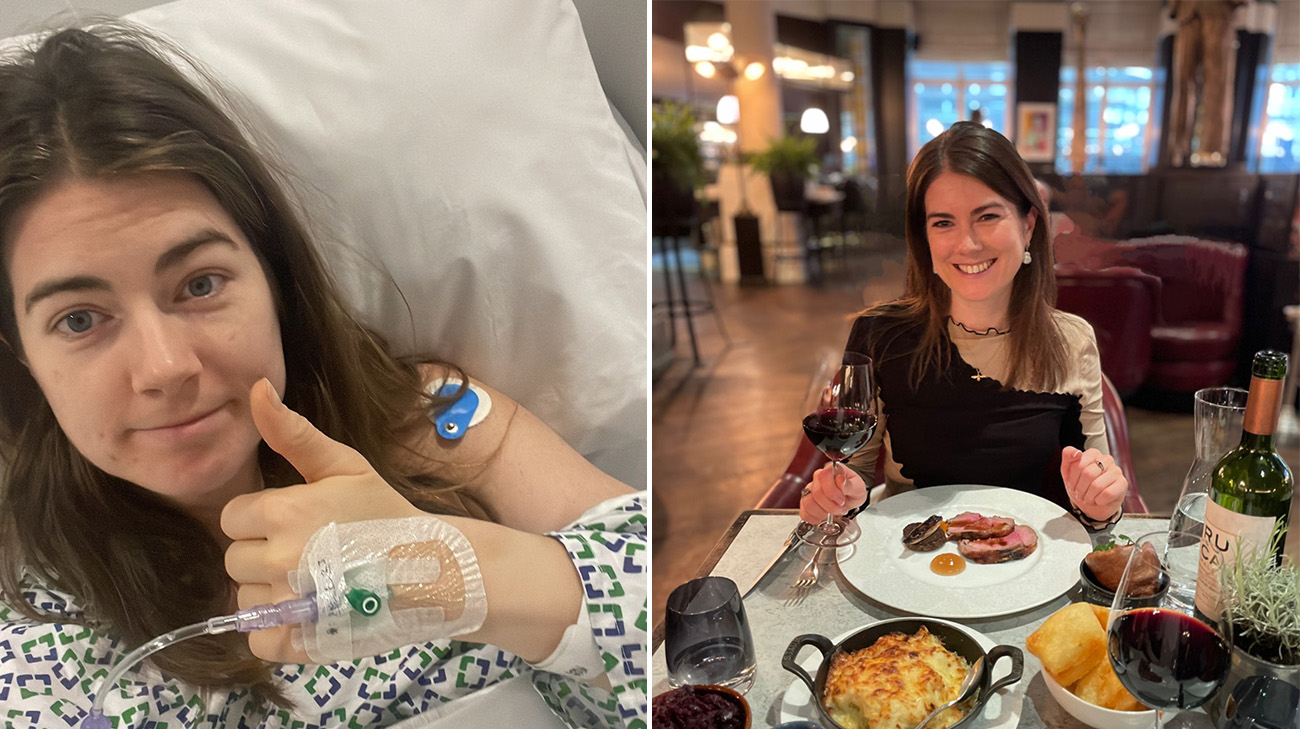
Having been on birth control medication for almost half of her life to alleviate painful menstrual cycles, Arabella Reeves decided she didn’t want to take the pill any longer. So in November 2021, the 33-year-old from London stopped taking her prescribed contraception.
Immediately, she started having issues — her period was irregular, having a period roughly every six to eight weeks, and she was in severe pain that kept getting worse.
“I enjoy going out with friends and to the gym to work out, but the issues my period was causing made me avoid both”, says Arabella. “It was affecting my daily life significantly”.
In August 2022, Arabella made an appointment with Dr Joan Pattle, a GP at Cleveland Clinic London, through her corporate healthcare services made available by her employer.
“Dr Pattle took my pain symptoms seriously and got action quickly. Without her, I'm sure I would still be experiencing a lot of pain” says Arabella.
“I enjoy going out with friends and to the gym to work out, but the issues my period was causing made me avoid both.”
After reviewing Arabella’s medical history and hearing what her symptoms were, her GP felt that she may have endometriosis and referred her to Mr Fevzi Shakir, a consultant gynaecologist at Cleveland Clinic London, who specialises in treating endometriosis.
Endometriosis is a condition where cells similar to the tissue lining the uterus is found on other parts of the body. When this tissue grows in the wrong places, it can cause uncomfortable symptoms that can impact daily life, and can cause long-term pain, disruptions to the menstrual cycle and fertility issues.
Arabella saw Mr Shakir in August 2022. He ordered an MRI and an ultrasound to help diagnose Arabella’s medical issues. Both didn’t show a cause, but due to her medical history, symptoms and a pelvic examination, Mr Shakir suspected Arabella had endometriosis.
“I suggested laparoscopic surgery, using small incisions and a high-definition camera, to determine what was causing her issues and if endometriosis were detected it could be excised at the same time” says Mr Shakir.
Due to her personal schedule, Arabella scheduled the surgery for January 2023. During the surgery, Mr Shakir found widespread endometriosis lesions and scar tissue on the walls of her pelvis, large bowel, rectum, bladder and diaphragm. Mr Shakir excised and removed all of the deposits that were causing Arabella so much pain.
“By removing all of the lesions that were causing inflammation, scarring and flare ups, Arabella’s symptoms should improve over time”, says Mr Shakir.
Arabella had follow-up appointments at three and six months, and was back in the gym and meeting up with friends following her three month appointment.
“Arabella is quite a remarkable patient who showed great resilience while coping with the endometriosis symptoms. She was committed to her treatment plan which gave her a positive outcome and improved her quality of life”, says Mr Shakir.
A full recovery can take from six to 12 months. Lesions and scar tissue have a possibility of returning years down the road, but Arabella can see Mr Shakir should any issues arise.
“I was so happy to have the operation and have it all removed. I felt so much better when the pain was gone”, says Arabella. “Mr Shakir was amazing. He was honest and explained everything to me so there were no surprises. I felt reassured throughout the whole time at Cleveland Clinic London, my care flowed very quickly there. Many people don’t receive a diagnosis for seven to eight years”.
Related Institutes: Digestive Disease & Surgery Institute

